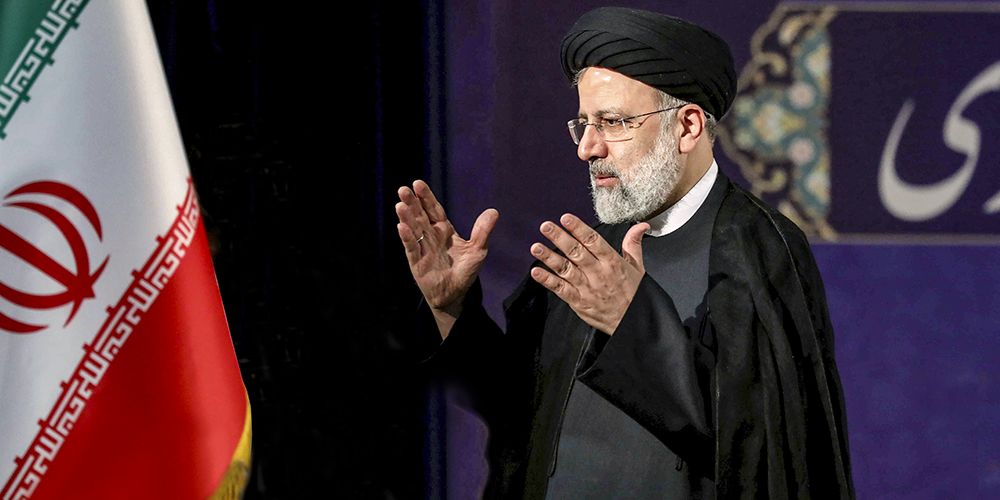Search

Publications
Nuclear program of Iran: will Washington succeed in negotiations with Teheran?

After nine rounds of proximity talks between Iran and the USA about return to the Joint Comprehensive Plan of Action (JCPOA) the process appears definitively to have come to halt despite the parties reporting about heading into the homestretch back in February 2022 and the expectation of signing the agreement soon. However, this did not happen.
The positions of Washington and Teheran are radical, and there are not many chances for success. Both are repeating the mantra about the need for the opposite party to be flexible and pragmatic. Probably, the diplomatic approach eventually will help the parties to break the deadlock and to achieve at least an interim solution, but there are certain impeding factors, in particular – the ones belonging to the internal politics.
Negotiations in Doha
In March 2022, the parties announced a break in the negotiation process on the restitution of the Joint Comprehensive Plant of Action. They both emphasized that the text of the agreement practically had been finalized, however, certain solutions required additional consultations in both capitals – Teheran and Washington. [1]
The plan was to sign the finalized agreement in February during the eighth round of negotiations in Vienna. This did not happen due to the contradictions between Iran and the USA on a number of issues. Apparently, the stumbling block was Teheran’s requirement to exclude the Islamic Revolutionary Guards Corps (IRGC) from the terrorists’ organizations list and Washington’s rebuff to do that. [2]
Before early June, the negotiation process seemed to be completely in the deadlock without any bright spot. However, on June 8 Teheran announced issuing new proposals on resuming the deal to Washington. [3] As per some sources, Iran was ready to trade-off its requirement about IRGC for signing the JCPOA. [4]
It resulted in the next round of proximity talks between Iran and the USA on June 28-29 in Doha, the capital of Qatar. Quite predictably, high hopes were laid on the negotiations in Doha: it seemed that after the break caused by irreconcilable differences the very fact of the parties getting back to the bargaining table was promising success. [5]
However, the round in Doha did not result in anything tangible – the parties were not able to achieve the compromise for signing the final document. According to the American party, Teheran did not demonstrate the due endeavor to meet halfway. [6]
At the same time, the evaluation by the Iranian party was positive. [7] However, the very fact that Iran was ready to compromise its requirement for excluding IRGC from the terrorists’ organizations list visibly weakens Teheran’s bargaining positions. This requirement seemed very tough in the beginning, but now looks like Iran may easily give it up for the sake of sanctions relief. Probably, one of the reasons for the negotiations in Doha failing was that the US once again realized that Iran was much more interested in the agreement and that Washington could at least keep its requirements at the same level or even upscale them.
What JCPOA means for Iran
Iran indeed has more reasons to return to the JCPOA as soon as possible, than the USA: the President Ebrahim Raisi is a pragmatic politician, who understands the benefits of lifting the sanctions perfectly well. Even though the economic situation in the country is not as critical as it used to be in the aftermath of President Trump exiting the deal, a lot of problems still exist.
The inflation rate in Iran is 40-50%, the national currency undergoes the devaluation leaps. The basic infrastructure of the country including oil-and-gas industry, the energy distribution grids and transportation networks – all of this needs upgrade and investment. [8] There is also a water problem in Iran, the solutions to which are still unclear. Last year, residents of several Iranian cities were demonstrating against the shortage of water leading sometimes to clashes with the police. In theory, lifting of sanctions may help to resolve that, at least partially.
The troubled economy may cause social instability. Furious protests in the autumn of 2019 broken out in Iran against the background of rocketing gasoline prices serve a remarkable example of that. [9]
Finally, we should not forget that Iran, like many other states, felt and still feels the pandemic-caused crisis implications.
At the same time, we need to understand that the situation is unambiguous, and if the parties succeed in reaching the agreement, Washington will be ready to remove some major sanctions, but not all of them. [10] Ebrahim Raisi wants to avoid the story of his predecessor Rouhani in becoming the President fooled by the US for the second time.
All of these factors underpin a rather tough stance of Iran and its unwillingness to defer to the American party. However, taking into account stronger interest of Teheran in the deal, this strategy does not look effective. Thus, Washington viewed the removal of Iran’s requirement on IRGC before Doha more like a vulnerability, not a conciliatory gesture. After that IAEA adopted an anti-Iranian resolution [11] signaling about the US intent to go to the mat and not to diminish pressure on the Islamic Republic. It is highly likely that Washington may soon urge more concessions from the Iranian party.
USA and nuclear deal
Nevertheless, despite the obvious dependency of Iran over the JCPOA, this deal may also bring certain dividend to the US. Isolation of Moscow is one of the priority tasks for Washington today. Against the background of the RF special military operation in Ukraine resulting in serious deterioration of the relations with the West, Russia is actively pursuing the Eastern vector of its foreign policy. The outstanding example is the recent visit of the President Vladimir Putin to Teheran to participate in the «Astana Trio» summit (Russia, Iran, Turkey). This event was a remarkable demonstration of the absence of international isolation of the Russian Federation. [12] Manifesting the pragmatic approach and executing the respective agreement with Iran, the USA may try to drive a wedge into Russian – Iranian rapprochement.
Another important issue pertains to hydrocarbons. Due to the global energy crisis Washington is in bad need for the new sources of oil. The objective of the recent Joe Biden’s visit to Saudi Arabia was achieving the Riyadh’s agreement for increasing the crude production, which potentially could result in the global cut in prices for the «black gold». However, in all appearances, the American President did succeed in persuading the Crown Prince Mohammed bin Salman. [13] In this regard, the rational decision for the USA would be to patch up the relations with Iran and resolve «the oil problem».
There are more obvious reasons for the USA to come back to the nuclear deal with Iran. Trump’s unilateral withdrawal the JCPOA and his policy of maximum pressure over Teheran did not bring the results expected by the White House, but moreover – had negative implications. The pressure and lack of dialogue did nothing but facilitated the development of the Iranian nuclear program, and Teheran’s foreign policy in the region became more aggressive. [14] Finally, significant reputational loss became part of the total costs incurred by the USA. [15] After wreckage of the deal approved by the UN and IAEA, many countries were concerned about Washington’s negotiability in the situation when there was no continuity of foreign policy between the Republicans and Democrats. [16]
Hence, the success of the nuclear deal with Iran could mean killing two birds with one stone for Washington – enhancing the international isolation of Russia and resolving domestic energy problems. However, the domestic political situation in the US interferes in the scenario. President Joe Biden is not very popular with the Americans, and he is afraid to lose even more making advances and executing deals with unfriendly states. Senate races in November 2022 reinforce this factor even more. The return to the nuclear deal with Iran can provide for significant political gains of the USA, but does not promise high political score to Biden himself. In the best case, he will receive a down-sized version of the agreement previously received by Barak Obama. Biden badly needs to outperform Obama in order to present it as his victory. Hence, the attempts to link the regional policy of Teheran with the negotiations, even though it does not fall under the agreements.
Indeed, if we look at resuming the JCPOA negotiations from the rational point of view, both parties are interested in reaching the consensus: Iran – due to the economic reasons, the USA – due to the reasons pertaining to energy and foreign policy. The pragmatic approach tells us that such agreement will be achieved. At the same time, the impeding factors are the erroneous negotiations strategy of the new Iranian leadership and domestic policy factors in the USA. Even though there still are chances for achieving the agreement, lack of mutual understanding unwillingness to put the political capitals at risk take both parties further away from the return to the deal.
1. Borrell proposed a pause in the negotiations on the Iranian nuclear program. Interfax, 11.03.2022.
2. State Department: Iran did not go for concessions to the US in exchange for excluding IRGC from the terrorists’ organizations list. TASS, 25.05.2022.
3. Teheran presented a new pack of proposals for Washington to reinstate the nuclear deal. TASS, 8.06.2022.
4. Iran lowers the bar of the nuclear deal requirements. Nezavisimaya Gazeta, 20.06.2022.
5. Ryabkov: Russia monitors the Doha negotiations on nuclear deal with great interest. Rambler, 29.06.2022.
6. The US and Iranian delegations failed to achieve the agreement on JCPOA. RIA Novosti, 05.07.2022.
7. Amir-Abdollahian: Iran is positive about the new round of JCPOA negotiations in Doha. IRNA, 30.06.2022. Amir-Abdollahian-Iran-is-positive-about-the-new-round-of-JCPOA-negotiations-in-Doha
8. Latent Trumpism. What to expect from negotiations on nuclear deal with Iran? TASS, 21.11.2022.
9. Media: protests in almost 100 Iran localities. TASS, 17.11.2019.
10. USA refuses to relieve Iran from all the sanctions introduced starting from 2017. Interfax, 10.04.2021.
11. IAEA Board of Governors adopted the resolution on Iran due to identifying the Uranium particles at the disputable facilities. TASS, 8.06.2022.
12. «Russia is demonstrating absence of isolation»: why Putin came to Teheran. Gazeta.Ru, 19.07.2022.
13. Crown Prince stands on principle. Kommersant, 17.07.2022.
14. New approaches of J. Biden’s administration to nuclear activity of Iran. Kosarev, Vladimir Alekseyevich. National strategy issues, RISS, No.3 (66) 2021.
15. Briefing with Senior State Department Official On Ongoing U.S. Engagement in Vienna Regarding the JCPOA // U.S. Department of State, 06.05.2021.
16. Negotiability of the US raises questions, Lavrov stated. RIA Novosti, 05.04.2018.







